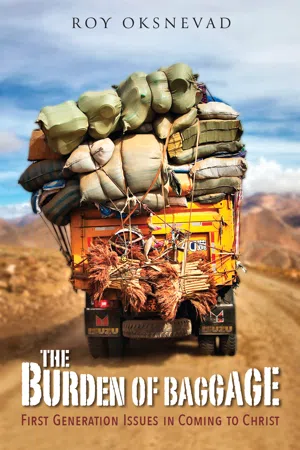![]()
8
Where Do We Go from Here?
The language-specific church is an important part of life for any first-generation believer. The Iranian’s first impression of the church is overall very positive, whether first exposed to the national church or the Farsi-speaking church. The church is a place of peace and is very attractive to the new attendees. Most respondents described the church in familial terms, expressing deep emotional attachment to the church and its members, indicating that it had become a surrogate family. The Iranian MBB church’s greatest strengths are its passionate worship, generous hospitality, and rich fellowship, which are experienced multiple times throughout the week.
New arrivals see the Farsi-speaking church as a safe place to get help as they transition to life in a new country. The church, and especially the pastor, is overwhelmed with the needs of this wave of new immigrants and asylum seekers. Established churches already have language skills and familiarity with the culture, making them a natural place for newcomers to seek help. However, the small fellowship and bi-vocational pastor are unable to meet all the demands.
The Iranian church can take several steps to alleviate this pressure. First, Western countries have Christian immigration organizations, such as World Relief, to help the church. Building relationships with these outside agencies is vital for the Iranian church to share the load of meeting needs that otherwise would tax all their time and resources. In addition, a strong relationship with a national church will provide another source of help for the refugees’ needs— although language skills might be an issue for non-Persians—freeing the Iranian pastor to do the work of the ministry.
Acts 6 addresses a similar situation, in which the apostles were unable to do the spiritual work of ministry because the physical needs of the outsiders, in particular the Hellenist widows, were being overlooked. The widows, much like the Iranian refugees, did not have a support system to care for their immediate physical needs. Therefore the apostles appointed seven men to supervise the distribution of food. Three criteria were used to select helpers: they must be ethical, having good character; spiritual, being filled with the Holy Spirit; and practical, possessing the wisdom to manage the equitable distribution of goods to the needy widows. These same criteria should be used in selecting helpers from the national church to assist Iranian pastors in ministering to the myriad needs of immigrants, from getting official documentation to distributing furniture.
Second, due to the economic realities of new immigrants, the Iranian church is dependent upon the Western church for facilities. The danger is for MBBs to succumb to the patronage of Western institutional policies, as illustrated by the story C9M told about a denomination that dictated the size and location of the church, or the story U19M shared about being asked by a megachurch to translate the pastor’s messages so the church could have a “Persian outreach.” James Plueddemann warns,
Despite a genuine desire to be egalitarian, churches in high-power-distance and wealthy countries are subtly tempted to see themselves as patrons in a partnership relationship with churches in less wealthy countries. Leaders in poorer churches may even desire and appreciate the junior partner role. Frank discussions about power distance need to take place at the beginning of the partnership relationship. (2009, 104)
The Iranian church is in its infant stage, in which leaders and members are relatively new believers. “Unlike other Muslim populations which have converts to Christianity, Iranians don’t have an ethnic church they can look back to, a church to which their ancestors belonged. This marks them apart from groups like the Berbers and Palestinians” (Miller 2012, 5). Therefore there is little or no collective memory of how to structure a church.
The Iranian church needs time to create its own distinctive structure and history. “On the explicit level of beliefs, people become Christians but it often takes years, even generations, before the worldview of their church is transformed” (Hiebert 2008, 32). The unique aspect of the Iranian church in the diaspora is that it is creating its own history in the midst of a radical paradigm shift. Iranians are being exposed to another worldview by living in the diaspora, and Iranian Christians are learning to see reality through a new lens—that of Scripture. It is imperative that Iranian Christians study Scripture through their worldview and learn to apply it to their unique situation and not resort to imitation (taqlid) of Western Christianity. The Iranian church must resist the Islamic tendency of religious reductionism, in which Christianity becomes a set of black-and-white rules, and discover the expression of the church that is unique to Iranian culture. A strong Bible program must be included in the church strategy for the second generation.
The Iranian church and other MBB churches need to develop a vision and strategy that looks beyond survival of the language-specific church and take into consideration the future of their children. This involves more than just designing activities to keep them busy, but developing an organized biblical curriculum in the national language. The children’s cognitive language skills will be established through the language of the educational institutions they are attending, not the language spoken at home. Church leaders should seek to disciple and teach the next generation of Iranian Christians in the language of their new homeland. Workers from the national church are a great resource that the Iranian church can draw from.
We have seen that every person is unique and complex, and just telling new believers to read Scripture without a fuller understanding of the personal obstacles they face will not suffice. Having a better appreciation of a convert’s background plays an important part in assessing the needs for personal growth. There are several areas I would like to highlight.
Backward-Looking Culture
As stated before, Iran ranks twentieth from the bottom in the GLOBE sample, indicating that planning, investing, and future-oriented behaviors are not highly emphasized (Dastmalchian, Javidan, and Alam 2001, 541). One Iranian blogger expresses this backward-looking propensity in the following way: “The future never seems to hold a candle to the past” (Ghahremani 2011). This cultural characteristic influences several aspects of the Iranian church.
First, the backward-looking perspective makes it harder for Iranians to forgive. The past still influences the present, even if the present seems far removed from what was. Revenge as a response to past offenses is, unfortunately, a part of the Iranian church experience. When someone is hurt, the visceral reaction is to respond in like fashion. The pastor and teachers will have to emphasize the Christian teaching that the cycle of violence and hurt must stop, and the best way to make it stop is to resist the natural cultural tendency to always view a person from past encounters. Revenge is to be left up to God.62
Second, the collective memory of the past remains strong in Iranians’ consciences. Culturally and religiously, Iranians are reminded of the injustices of the past. E14F described memory as being scarred, so forgiveness takes time to learn and implement. For the church to move forward, it needs to consciously create a new collective memory around Christ’s work on the cross that reinforces the concept of forgiveness. This can be done through drama or other cultural forms, such as poetry extolling the virtues of Christ and his forgiveness. By instilling the virtues of Christ and his forgiveness, the idea to capitalize upon is that the church is called to suffer with Christ through forgiving and accepting one another.
Third, the backward-looking perspective limits the ability of Iranians to move into new patterns of leadership. Iranians are interested in reducing the power distance. Pastors who rely on a hierarchical church structure in which power resides in the pastor, who exercises unquestioned control, may actually violate an intrinsic Iranian cultural value of reducing power distance. Reducing power distance is possible in Western society and reflects the cultural milieu in which the church is birthed in the diaspora. Although the cultural value of desiring a more cooperative leadership approach to church polity is the intent, there is little collective memory to know how to implement and function under such a system. This is equally true for the pastor as well as the lay leadership. Over time, however, disharmony is bound to result in more experimentation, and trial and error will eventually help establish an MBB governance form that reflects the new desired egalitarian patterns of church polity but also retains a Middle Eastern cultural familiarity of leadership.
A transitional period is necessary during which both the pastoral and lay leadership are trained in more cooperative styles of leadership while acquiring the knowledge and skills to implement these methods. Both the pastor and the lay leaders need mentoring and accountability from an outside body to help the church move in this structural direction.
Fourth, the backward orientation may well elucidate the lack of vision churches experience and the lack of discipleship and other future-looking ministries in the church. Mature second-generation MBBs, on the other hand, are concerned about the future and the direction of the church. They are frustrated by churches in survival mode and often leave in desperation for a church that actually has a vision for the future. Pastors who maintain the old paradigm of control and power will have trouble keeping the loyalty of the congregation, which desires a future-looking ministry.
To summarize, the economic reality of new immigrants, the lack of pastoral education, poor vision for the future of the church, and the existence of power distance in the Middle Eastern MBB church are major obstacles to achieving a growing, vibrant church.
Moving forward, the MBB church will have to make proper pastoral training and goal setting for ministry needs an ongoing part of the mentoring process of Iranian pastors. Iranian pastors need help in church-planting strategy from someone who has cross-cultural experience. To achieve a future-oriented ministry, a partnering church or denomination needs to help the Iranian church set six-month to four-year goals. It may be difficult to ask the pastor or congregation to look to the future when there is little or no collective memory in this domain, coupled with the reality of working from a survivalist mentality. Possible ways to move the conversation forward are to ask for a history of the church over the past several years and to follow up by asking how to move the church in a different direction.
Another dimension of creating a vision for the Iranian church is to address the cultural value of individualism and the inability to work together (Min and Bozorgmehr 2000, 720). Forbis recognizes this inability to ...

